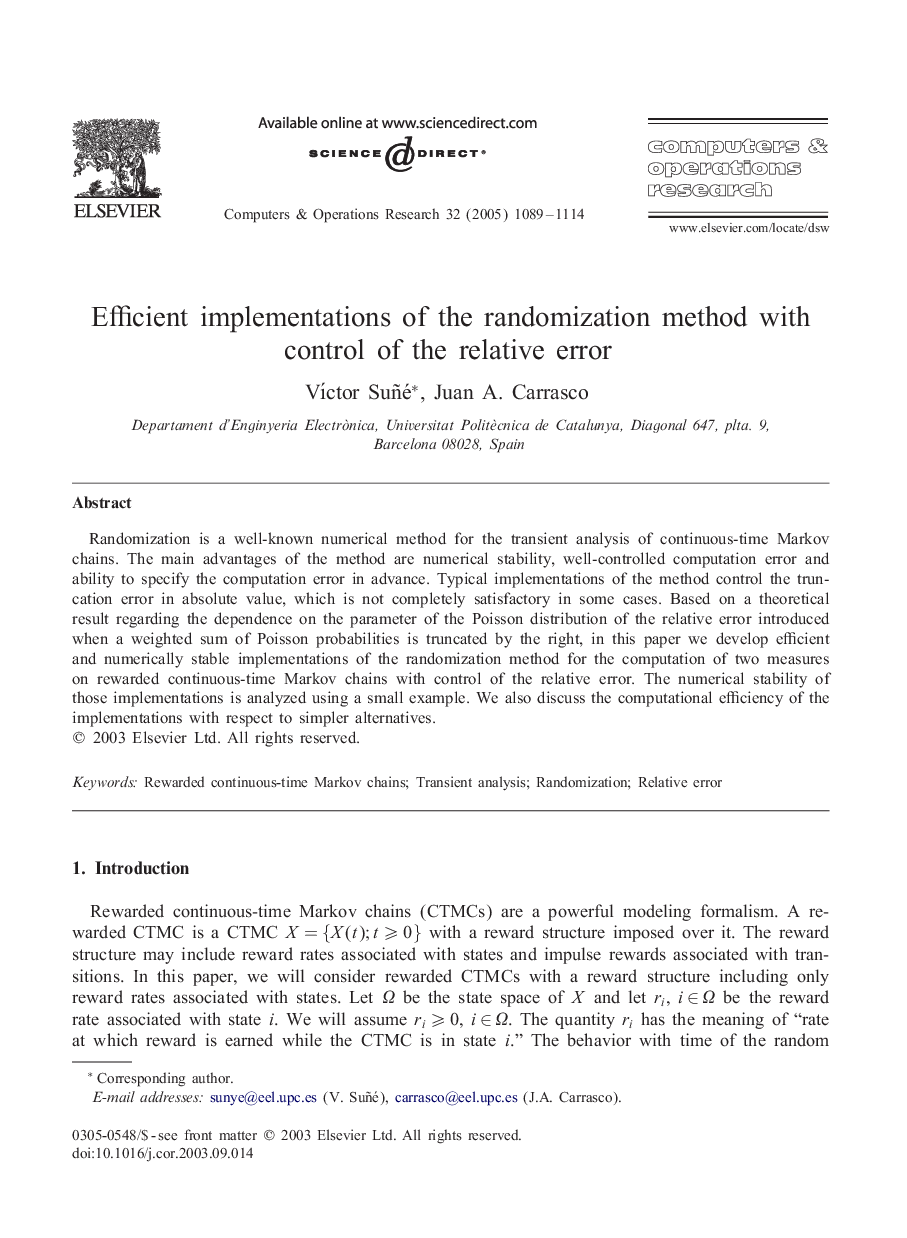| Article ID | Journal | Published Year | Pages | File Type |
|---|---|---|---|---|
| 10347305 | Computers & Operations Research | 2005 | 26 Pages |
Abstract
Randomization is a well-known numerical method for the transient analysis of continuous-time Markov chains. The main advantages of the method are numerical stability, well-controlled computation error and ability to specify the computation error in advance. Typical implementations of the method control the truncation error in absolute value, which is not completely satisfactory in some cases. Based on a theoretical result regarding the dependence on the parameter of the Poisson distribution of the relative error introduced when a weighted sum of Poisson probabilities is truncated by the right, in this paper we develop efficient and numerically stable implementations of the randomization method for the computation of two measures on rewarded continuous-time Markov chains with control of the relative error. The numerical stability of those implementations is analyzed using a small example. We also discuss the computational efficiency of the implementations with respect to simpler alternatives.
Related Topics
Physical Sciences and Engineering
Computer Science
Computer Science (General)
Authors
VıÌctor Suñé, Juan A. Carrasco,
